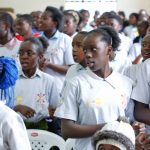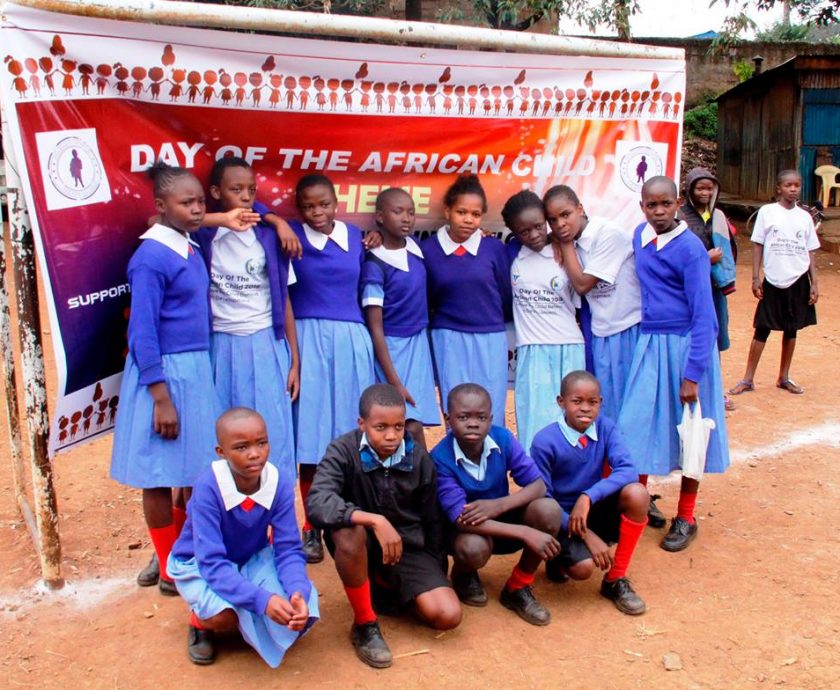Transforming deeply entrenched gender inequalities is essential for achieving sustainable development and driving meaningful change from our local to our global communities. Research by leading authorities suggests that some of the strongest forces behind persistent gender gaps are harmful social norms and stereotypes that limit expectations of what women can or should do. These outdated norms that discriminate against women are all around us – and they are deeply ingrained.
The ideal is a world in which every woman and girl can create the kind of life she wishes to lead, unconstrained by harmful norms and stereotypes. And a world too, in which men are also free from the confines of adverse social norms and stereotypes of manhood and masculinity, and in which economies are growing and creating opportunities for men and women alike.
Men and boys continue to experience many advantages in our patriarchal societies. At the same time, they are also affected by restrictive gender roles and norms that have negative consequences for themselves, and those around them. Boys and men can play an important role as partners, allies, supporters and champions for gender equality, by learning about gender inequalities and human rights and actively challenging discriminatory gender norms and addressing power inequities between persons of different genders. The engagement of men and boys must be done across all levels of society, from the individual, to the community to the institutional and systemic levels, and must include the engagement of community, religious and political leaders, most of whom are still men.
Being engaged in leadership roles at all levels increases women’s opportunities to meaningfully engage and influence decision-making, peace building efforts, and community interventions by promoting efforts that increase the number, the capacity and agency of women in leadership at all levels. The below are some listed social norms limiting their progressive engagement.
- Education of girl child is a major issue in Kenya. Despite the many gains realized in education the education sector, such as free education, boys are still much ahead of girls in enrolment especially at secondary schools and colleges
- Early marriage practice affects girl child in numerous ways. The girl child in this situation is exposed to trauma causing sexual experiences and also after the break up with the child brides ends up destitute in the streets or as barmaids and possibly sex workers
- Female genital mutilation grossly mutilates and demeans the women and girls who undergo the practice. Most men from certain communities still feel that it is a cultural rite that ensures the woman is second place in their social construct further demeaning their decision-making power.
- Gender based labor has assigned most women as caregivers and thus limiting their economic power. Most girls in Kenya are suffering the effects of child domestic labor. Many girls are relied upon to work in urban households.
Some of the other social norms afflicting girls and young women are derived from attitude.
- The African men are final
- A woman is supposed to be seen and not heard
- Women are seen as reproductive objects and their main role is to give birth and nature the children in the society.
- There are no inheritance rights for the women.
- Women are not allowed to challenge the men in decisions.
The boys and men invited engaged in a rich discussion and brought about key issues that the project seeks to address. It was recognized that the discussion around involving men is still in its very initial stages. Much remains to be done at community, national and international levels.
At the macro level, gender stereotypes (gender roles in the family and in the community, for example) and discriminatory social norms (such as FGM, early marriage or Land inheritance) persist and constitute the biggest barrier to overcoming gender inequality across Kenya. At the micro level, the lack of good quality education and training for young boys and girls about gender roles, expectations and women’s autonomy is another obstacle.
Many participants emphasized the fact that society (both women and men) should be educated about gender equality and its benefits. More specifically, it was recognized that men and boys should be educated from an early age, they should be engaged in preventing or ending violence against women and girls, they should participate more equally to household responsibilities and more attention should be paid to how gender relations are affected by conflict.
Participants highlighted the importance of using gender transformative approaches and peer education among young men, either in the form of workshops or non-formal learning methods and using technology and social media tools to raise awareness. Most importantly, the discussion showed a real consensus on the importance of engaging in a dialogue with men and boys about issues that also concern them, and for programmes targeting women to also consider the role of men and boys in addressing inequality.
[/vc_column_text][/vc_column][/vc_row]




